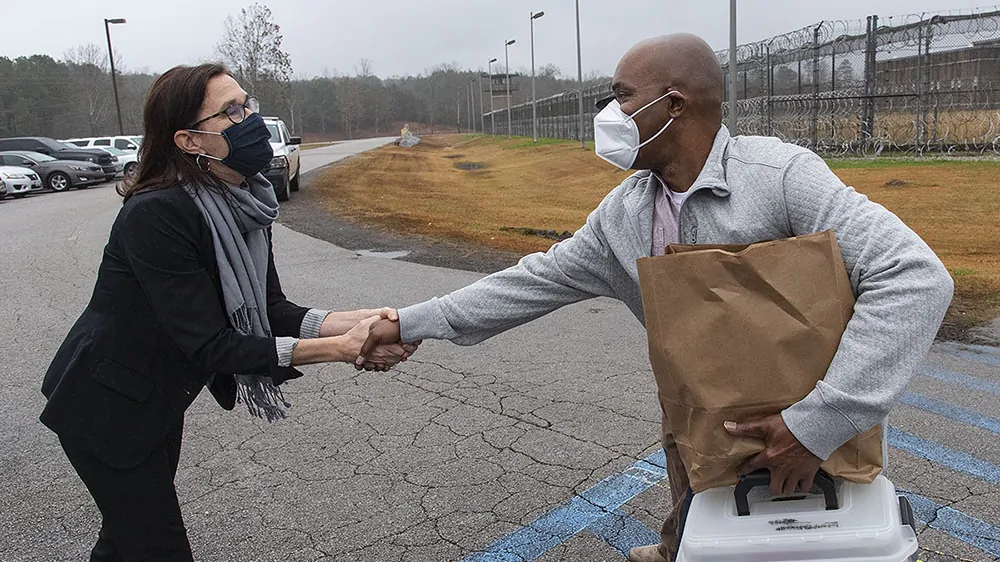An Alabama nonprofit that advocates for incarcerated people and works to free those serving harsh sentences under the state’s Habitual Felony Offender Act has once again been awarded a grant from the NFL’s Inspire Change initiative.
Alabama Appleseed was selected as one of nine organizations to receive a portion of the more than $160 million in grants the NFL has awarded to dozens of nonprofits nationwide since 2018. The Alabama nonprofit first received an NFL grant in January 2020 after a coalition of players suggested Alabama Appleseed be selected.
The NFL noted Alabama Appleseeds success in freeing Ronald McKeithen, released in March after serving more than three decades following a 1984 conviction on first-degree robbery, and sentenced to life without the possibility of parole under the state’s Habitual Felony Offender Act.
The NFL grants are given to organizations working in several key areas: Education, economic advancement, police-community relations and criminal justice reform.
“Our grant partners are instrumental to the success of Inspire Change and the societal impact the NFL is striving to make across the country,” said Anna Isaacson, NFL Senior Vice President, Social Responsibility, in a press release. “These organizations are rooted in their communities, working hard to provide necessary resources that create real change. The NFL family is committed to their missions, proud of their successes and inspired by their efforts to open up access to opportunity and equality in the ongoing fight for social justice.”
“Players Coalition is committed to working with the NFL Player-Owner Social Justice Working Group, ensuring that Inspire Change grants are distributed to organizations who are committed to improving social and racial justice, with a focus on police and community relations, education, economic advancement, and criminal justice reform,” Kelvin Beachum, Players Coalition Task Force member, Social Justice Working Group member, and Arizona Cardinals offensive lineman in a statement.
Carla Crowder, executive director of Alabama Appleseed, told APR in a message Monday that the NFL support has moved the small nonprofit to another level.
“Appleseed has expanded our team. We’ve taken on new challenges. We are able to be bolder and more innovative in our approaches to challenge systemic racism and injustice in Alabama,” Crowder said.
Especially rewarding is that the NFL continues to believe in the nonprofit’s work and support it even though there is no NFL team in Alabama, Crowder said.
“But through this partnership we have connected with NFL legends and former players who were stars at Alabama and Auburn and have helped raise awareness about the human rights crisis in Alabama prisons,” Crowder continued. “No question, the most rewarding result of this partnership is freedom for Ronald McKeithen. With NFL support, we were able to take on his case and in December he was released after serving 37 years in prison for a convenience store holdup at age 20. Ronald is a beacon of hope for others.”
















































